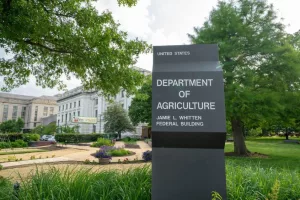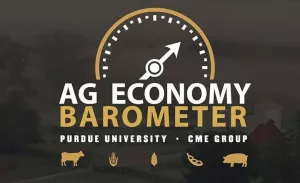
House Narrowly Passes Trump’s Signature Tax and Spending Package
WASHINGTON — In a dramatic overnight session and drawn-out floor discussion into the afternoon, the House finally passed President Donald Trump’s signature tax and spending bill Thursday, narrowly advancing the Senate version of the legislation in a

Ag Groups and Leaders React to Passage of One Big Beautiful Bill
(WASHINGTON D.C.) — On Thursday, one day ahead of President Donald Trump’s original target date of July 4th, the House finally passed the President’s signature tax and spending bill. The House narrowly advanced the Senate version of

Teamsters Ratify Contract at Tyson
(AMARILLO, Texas) – Teamsters Local 577 members at Tyson Foods of Amarillo voted overwhelmingly to ratify a new four-year collective bargaining agreement that raises wages and expands benefits. “This victory is what Texas Teamsters are all about

Secretary Rollins Announces “Great American Farmers Market” to Celebrate America 250 on National Mall
(Washington, D.C., July 2, 2025) — In celebration with America 250, U.S. Secretary of Agriculture Brooke L. Rollins today announced the U.S. Department of Agriculture (USDA) will be hosting the Great American Farmers Market on the National Mall in

BASF Introduces the Real Results Yield Challenge
The Real Results Yield Challenge is BASF’s biggest trial program to date, created to showcase the difference that Veltyma®, Revytek®, and Revylok® fungicides can make in corn and soybean fields this season. As part of the program,

Farmer Sentiment Weakens Due to Cloudy Trade Outlook
Farmer sentiment weakened in June following two months of improvement, as tracked by the Purdue University/CME Group Ag Economy Barometer. The barometer dropped 12 points to 146 from the previous month. A change in producers’ expectations for the